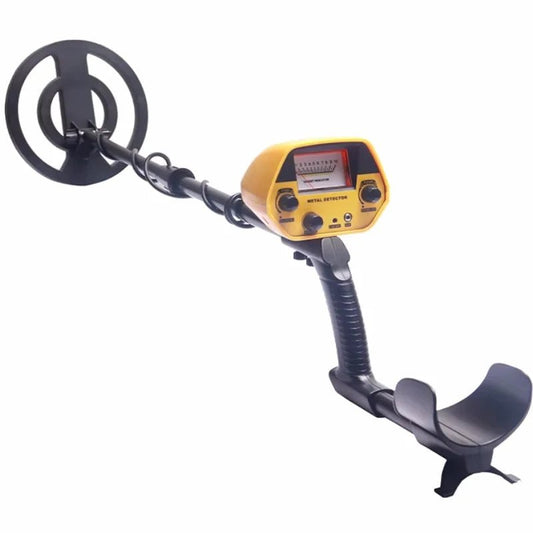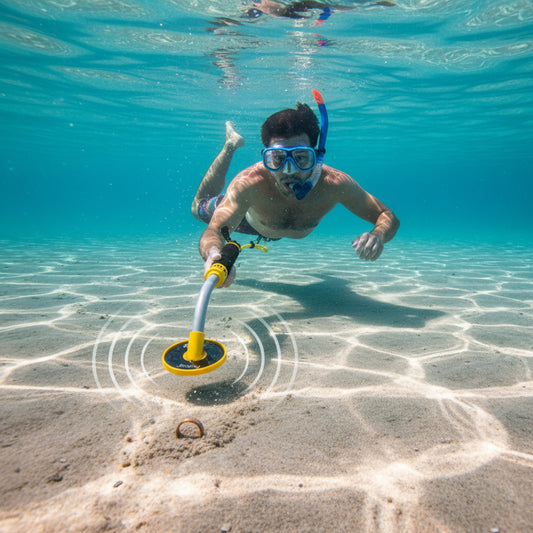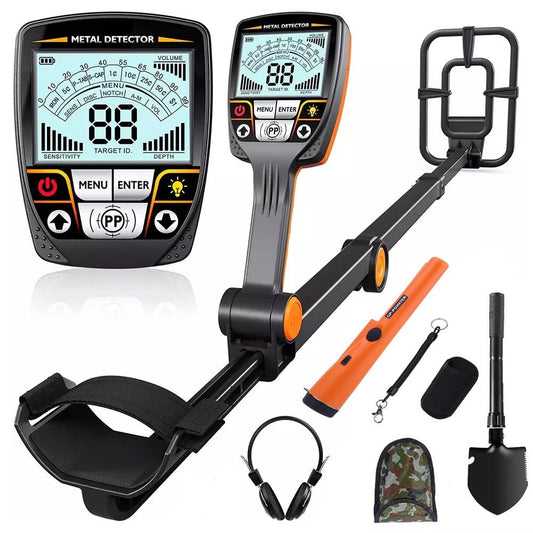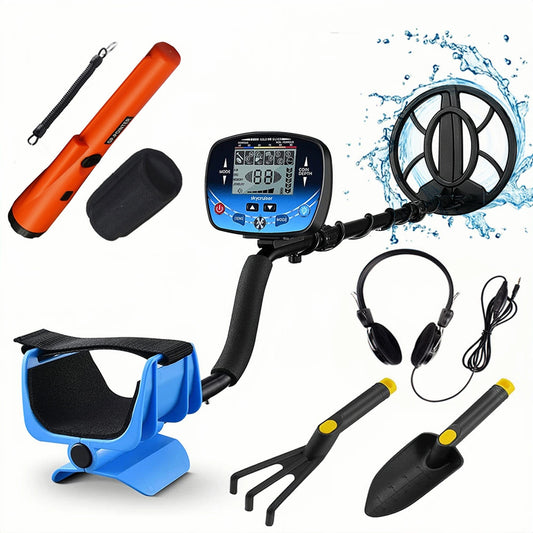
Metal Detecting in Fiji: Beach Detecting and Local Laws
Share
Fiji’s pristine beaches and rich history make it a dream destination for treasure hunters and metal detecting enthusiasts. Whether you’re a local hobbyist or a visitor hoping to find lost coins, jewelry, or even traces of shipwrecks, metal detecting in Fiji can be an incredibly rewarding experience.
However, understanding local laws, picking the right beaches, and following best practices are essential for a safe and successful hunt. This guide covers everything you need to know about beach metal detecting in Fiji.

Is Metal Detecting Legal in Fiji?

Fiji is one of the more welcoming countries in the South Pacific for metal detecting. According to international hobbyist resources, metal detecting is allowed on beaches and on private land (with the landowner’s permission).
There are no specific national restrictions against recreational metal detecting on public beaches, making Fiji a popular spot for both locals and tourists.
Key legal points:
-
Beaches: Metal detecting is permitted on public beaches. Always avoid protected marine areas, nature reserves, or archaeological sites, which may be off-limits.
-
Private Land: You must have explicit permission from the landowner before detecting on private property, including resort beaches that are not open to the public.
-
Protected Areas: Government protection areas or declared reserves may be closed to all prospecting or metal detecting. Always check local signage and ask authorities if in doubt.
-
Gold Prospecting: Fiji’s Mining Act allows for prospecting with proper permits, but recreational beach detecting for lost items does not require a mining license.
In summary, you can enjoy metal detecting on most Fijian beaches, but always respect local laws and obtain permission where necessary.
Check out our article about the Best Places for Metal Detecting.
Best Beaches for Metal Detecting in Fiji
Fiji’s islands are dotted with stunning beaches, many of which are ideal for metal detecting. Here are some of the best spots to try your luck:
Natadola Beach
Located on Viti Levu, Natadola is famous for its white sands, gentle surf, and popularity with tourists. This high foot traffic makes it a prime location for finding lost jewelry, coins, and other valuables.

Kiuva Beach (Near Suva)
Kiuva Beach, close to the capital Suva, is a favorite among local detectorists. The soft sand and regular visitors provide plenty of opportunities for interesting finds.

Turtle Island Beach
This private island offers secluded, pristine beaches. While access is limited to resort guests, those who visit report excellent shelling and occasional metal detecting opportunities along the shoreline.

Nukulau Island Beach
A hidden gem off the coast of Rakiraki, Nukulau Island Beach is less crowded, making it a peaceful spot for detecting. Boat access is required, and the best time to hunt is at low tide.

Leleuvia Island Beach
Located in the Lomaiviti Group, Leleuvia’s coral sand beaches are known for their natural beauty and potential for lost coins and jewelry.

Vomo Island Beach
Another top shelling and detecting spot, Vomo Island Beach is popular with tourists and offers a chance to find unique treasures.

Manta Ray Island Beach
Situated in the Yasawa Islands, this beach is known for both its marine life and the potential for finding coins and jewelry washed up by the tide.

Check out our article about the best tips and advices for beach metal detecting.
What Can You Find While Metal Detecting in Fiji?
Most detectorists in Fiji report finding:
-
Modern coins (Fijian dollars, foreign currency)
-
Jewelry (rings, bracelets, necklaces)
-
Watches, sunglasses, and small electronics
-
Occasional relics or tokens, especially near older resorts or piers
While gold prospecting is possible in Fiji, most beach finds are modern and related to tourism.

Safety and Responsible Detecting Tips
Fiji’s beaches are generally safe, but it’s important to follow these tips for a successful outing:
-
Detect Early or Late: The best time to detect is early morning or late afternoon, when beaches are less crowded and the sand is cooler.
-
Stay Hydrated and Protected: Fiji’s sun is strong—bring water, sunscreen, and a hat.
-
Use the Right Gear: A waterproof detector, sand scoop, and pinpointer will make your hunt easier and more productive.
-
Respect the Environment: Always fill in your holes and remove any trash you find.
-
Avoid Protected Areas: Do not detect in marine reserves, turtle nesting zones, or archaeological sites.
-
Be Aware of Wildlife: Watch for sharp shells, jellyfish, and other hazards in the sand and water.
-
Travel with a Buddy: For safety, especially in remote areas, bring a friend or let someone know your plans.
Local Etiquette and Best Practices
-
Ask Permission: Always ask before detecting on private or resort beaches.
-
Be Discreet: While metal detecting is legal, be respectful of other beachgoers and avoid crowded areas.
-
Report Valuable Finds: If you find something valuable or engraved, consider turning it in to local authorities or resort management.
-
Leave No Trace: Help keep Fiji’s beaches beautiful for everyone.

Conclusion
Metal detecting in Fiji is a fantastic way to combine adventure, relaxation, and the thrill of discovery. With open laws on public beaches, a welcoming culture, and endless stretches of sand to explore, Fiji is a top destination for detectorists. Just remember to respect local regulations, stay safe, and enjoy the hunt—who knows what treasures the Fijian sands may reveal?




